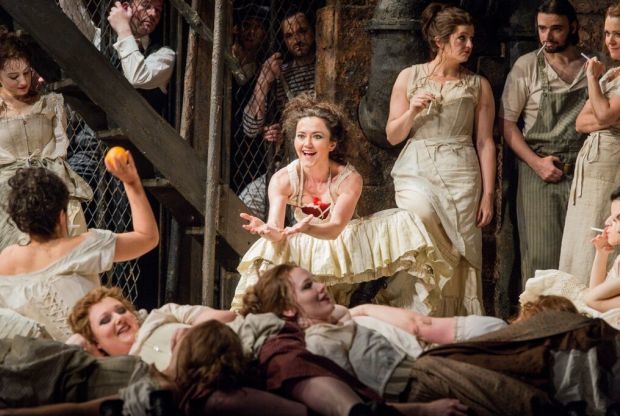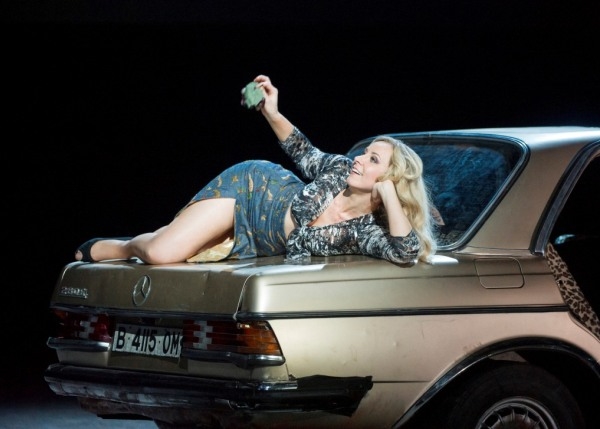Carmen (Glyndebourne)

© Robert Workman
Distinctions become clearer in the pit where, in contrast to the over-careful Coliseum reading, Jakub Hrůša in Sussex conducts the London Philharmonic Orchestra with unbuttoned élan, bold tempo choices and the occasional magic tenuto that keep Bizet’s score sizzling.
David McVicar directs Carmen as though it were a modern musical – a first cousin of Les Mis, perhaps – with ultra-detailed chorus work and unrestrained stage noise, not least in a first act whose set (by Michael Vale) is alive with metal gates and barriers that are always up for a satisfying rattle. The director’s use of depth and levels in this busy act is made all the more atmospheric by the ever-shifting focus of Paule Constable‘s mood-enhancing lighting.
The production was originally built around the unique talents of Anne Sofie von Otter, a tall, distinctly un-Iberian singer and a brilliantly emphatic stage animal. French mezzo Stéphanie d’Oustrac is something else again. No mantilla’d vamp but a manipulative and tactile young woman, she uses the aura of innocence to draw men into her orbit then twists or sticks them with gleeful abandon – truly the "effrontée" (impudent girl) of Mérimée’s novella. Vocally, d’Oustrac projects with greater power than I’d anticipated and her seductive timbre carries above the LPO with no trace of forcing or coarsening.
Energy levels tingle
Her Don José, Pavel Cernoch, is at his most convincing in the final act when the man’s obsession with Carmen becomes detached from reason. The Czech tenor’s dangerous silence gives way to a roaring, unrestrained hysteria and a messy demise for the woman he loved too much. It's impressive. Prior to that, alas, Cernoch had sung everything else at much the same volume – and a Don José who keeps his dial at 11 for the entire opera is neither sympathetic nor complicated, just relentless. The flower song was securely sung, but ungrateful and therefore not remotely touching.
By contrast Lucy Crowe sang Micaëla, the girl from back home, with an affecting grace and an infusion of sadness that rendered her third-act aria almost unbearable. It’s a generously unshowy performance from an admirable English artist. A toast, too, to another home-grown soloist, David Soar, who has replaced the billed Escamillo at short notice, and with no advance notification that I have seen. (Soar’s previously announced role, Zuniga, is now sung – very well – by Simon Lim). The young bass’s star is very much in the ascendant just now, and here he exudes panache both as a swaggering character and as an accomplished singing actor.
In an opera where incidental dialogue propels so much action, it’s an advantage to have native speakers on hand to deliver it. That, of course, is the ace up d’Oustrac’s sleeve. She is joined by her compatriots Christophe Gay and Loïc Félix as a vibrant pair of smugglers, and whenever the three of them are onstage energy levels tingle. Not that the production, in this expert revival by Marie Lambert, needs much help in that regard. Her crowd work with the Glyndebourne Chorus (and some excellent children) has the smack of authority and authenticity.











